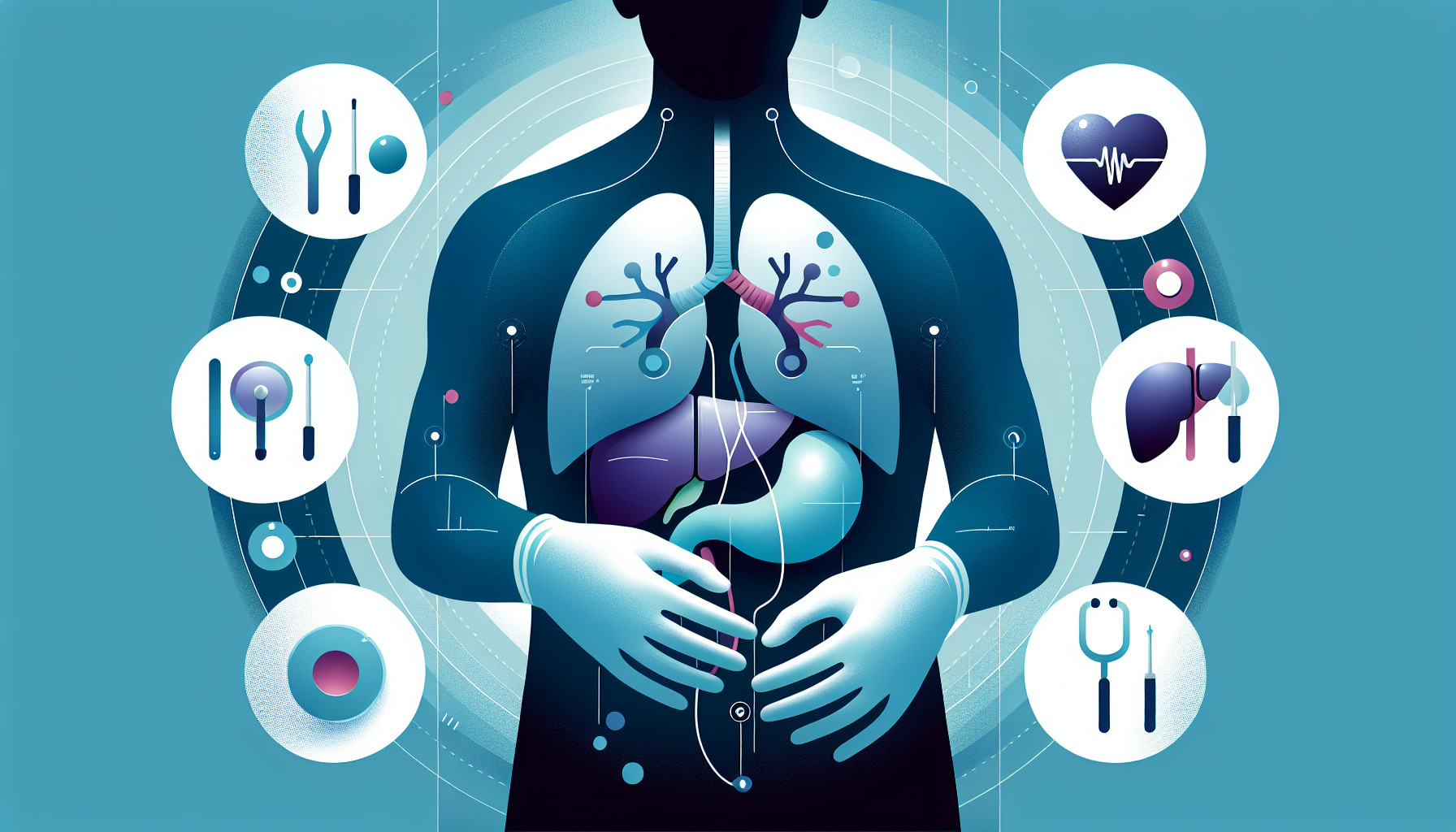Our Summary
This research paper examines the issue of cancer being transmitted from organ donors to recipients, an occurrence which can have major consequences for both the patient and other individuals who have received organs from the same donor. The researchers specifically looked at this issue in relation to orthotopic transplants, where an organ is replaced with a donor organ in the same place. The study involved reviewing existing literature on the topic, and found 73 documented cases of this type of cancer transmission in liver, heart, lung, and multi-organ transplants. The diagnosis was usually made within 8 months of the transplant, and in many cases, the cancer was already widespread. The study found a high mortality rate (75%) and a median survival time of just 7 months. Re-transplantation was sometimes successful, but in some cases, the cancer returned. The study concludes that the prognosis for patients in this situation is generally poor. However, the available evidence is limited and variable in quality, and the authors suggest that further research is needed to refine clinical practice.
FAQs
- Can cancer be transmitted from organ donors to recipients?
- What is the survival rate and median survival time for patients who receive cancerous organs?
- What further research is required to improve the prognosis for patients who receive transplants from cancerous donors?
Doctor’s Tip
One helpful tip a doctor might tell a patient about organ transplant is to be aware of the potential risk of cancer transmission from the donor organ. It is important to regularly monitor for any signs or symptoms of cancer following the transplant, and to communicate any concerns with your healthcare team. Early detection and intervention can lead to better outcomes in these cases.
Suitable For
Patients who are typically recommended for organ transplant are those who have end-stage organ failure or severe organ dysfunction that cannot be treated effectively through other means. Common conditions that may warrant organ transplant include:
Chronic kidney disease: Patients with end-stage renal disease who are dependent on dialysis or have severe complications related to kidney failure may be candidates for kidney transplant.
Chronic liver disease: Patients with end-stage liver disease, cirrhosis, or liver failure may be recommended for liver transplant.
Heart failure: Patients with severe heart failure that cannot be managed with medications or other treatments may be considered for heart transplant.
Lung disease: Patients with severe lung conditions such as chronic obstructive pulmonary disease (COPD), cystic fibrosis, or pulmonary fibrosis may be candidates for lung transplant.
Multi-organ failure: Some patients may require transplant of multiple organs, such as heart and lung or liver and kidney, due to complex medical conditions.
It is important for patients to undergo thorough evaluation by a transplant team to determine if they are suitable candidates for organ transplant, and to discuss the potential risks and benefits of the procedure. Transplant recipients also need to be committed to lifelong follow-up care, including taking immunosuppressive medications to prevent rejection of the donor organ.
Timeline
Before organ transplant:
- Patient is diagnosed with end-stage organ failure and is deemed a suitable candidate for transplantation.
- Patient undergoes extensive medical evaluations and tests to determine eligibility for transplant.
- Patient is placed on the national organ transplant waiting list and waits for a suitable donor organ to become available.
- Patient may experience deteriorating health and quality of life while waiting for a transplant.
After organ transplant:
- Patient undergoes the transplant surgery and begins the recovery process in the hospital.
- Patient is closely monitored for signs of organ rejection and other complications.
- Patient may need to take immunosuppressant medications for the rest of their life to prevent rejection.
- Patient undergoes regular follow-up appointments and medical tests to monitor the function of the transplanted organ.
- Patient may experience improvements in their health and quality of life following a successful transplant.
- Patient may need to make significant lifestyle changes to support the transplanted organ and maintain their overall health.
- Patient may need to deal with potential long-term complications and side effects of the transplant and medications.
What to Ask Your Doctor
- What is the risk of cancer transmission from organ donors to recipients?
- How common is cancer transmission in orthotopic transplants?
- What are the symptoms of cancer transmission that patients should be aware of?
- How soon after the transplant should patients be monitored for signs of cancer transmission?
- What are the treatment options if cancer transmission is detected?
- Is re-transplantation a viable option for patients who have received organs from a donor with cancer?
- How can patients reduce their risk of cancer transmission during the transplant process?
- What measures are in place to screen organ donors for potential cancer transmission?
- Are there any specific factors that increase the risk of cancer transmission in organ transplants?
- What ongoing research is being done to improve detection and treatment of cancer transmission in organ transplant recipients?
Reference
Authors: Greenhall GHB, Ibrahim M, Dutta U, Doree C, Brunskill SJ, Johnson RJ, Tomlinson LA, Callaghan CJ, Watson CJE. Journal: Transpl Int. 2022 Feb 4;35:10092. doi: 10.3389/ti.2021.10092. eCollection 2021. PMID: 35185366
